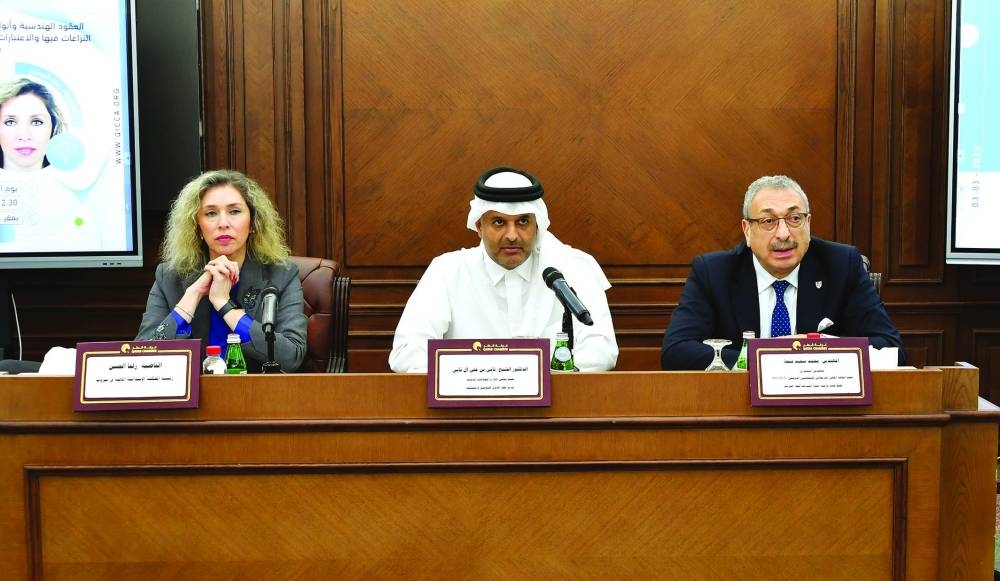The Qatar International Centre for Conciliation and Arbitration (QICCA) at Qatar Chamber is committed to promoting the culture of arbitration, especially among legal circles.
This was emphasised by QICCA board member for International Relations Sheikh Dr Thani bin Ali al-Thani, who highlighted the importance of arbitration in settling commercial disputes during a recently held seminar on ‘Engineering Contracts: Types, Features, Means of Dispute Resolution, Emerging Considerations of Multilateral Contracts in Arbitration Disputes’.
During the seminar, which was held at Qatar Chamber’s Doha headquarters in the presence of Qatar Chamber acting general manager Ali Saeed bu Sherbak al-Mansouri, Sheikh Dr Thani highlighted the role of arbitration in settling disputes, noting that the centre would continue to hold a series of seminars in this context.
The seminar was delivered by Mohamed Said Fatha, the former vice-president of the Arab League of Engineers, and Zalfa el-Hassan, the president of the First Instance Civil Court, the Customs Court, and Minors Crimes Court of Beirut.
During the seminar, Fatha reviewed the definition of a construction contract, its characteristics, legal implications, and types. Additionally, he elaborated on built, operate, and transfer (BOT) contracts and their importance, types, and disadvantages. Furthermore, he discussed model contracts, such as FIDIC, and modern methods of resolving disputes in engineering contracts.
He said engineering construction contracts could be divided into two main categories: fixed-price contracts and cost-plus contracts, noting that each group was generally commensurate with a series of circumstances surrounding the project.
Fatha said BOT contracts are adopted by countries to implement large-scale infrastructure and other projects, such as highways, roads, bridges, airports, telecommunications, ports, water, and electricity. He added that the private sector’s involvement in such projects ensures better quality and saves time and cost.
El-Hassan, meanwhile, discussed strategic considerations arising from multilateral contracts in arbitration, noting that multilateral arbitration is arbitration that involves more than two to three parties at least.
She also said multilateral arbitration has advantages and disadvantages, indicating that disputes in these cases could be resolved through a single arbitral tribunal, making it less costly and more promptly in resolving the dispute.
Business
QICCA continues to promote arbitration culture, says Sheikh Thani bin Ali
'QICCA continues to promote arbitration culture'

QICCA board member for International Relations Sheikh Dr Thani bin Ali al-Thani joins Mohamed Said Fatha, the former vice-president of the Arab League of Engineers, and Zalfa el-Hassan, the president of the First Instance Civil Court, the Customs Court, and Minors Crimes Court of Beirut, during the seminar.
